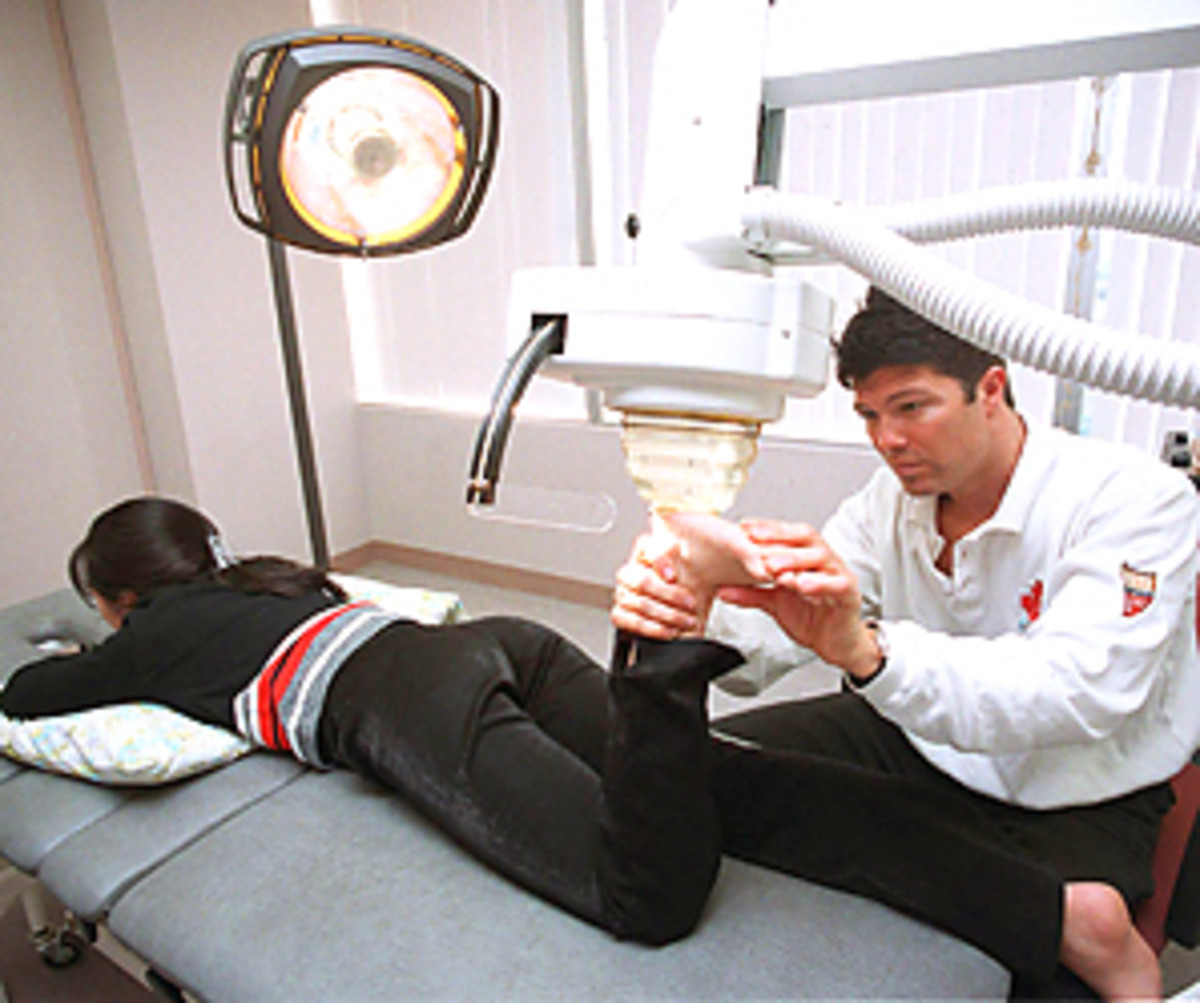SI: Feds likely to subpoena elite athletes in Galea HGH investigation
Federal law enforcement officials have alerted a number of world-class athletes to expect grand jury subpoenas in the case against Canadian physician Anthony Galea, three sources familiar with the investigation tell SI.com.
While it is unclear which athletes and how many will be subpoenaed, it is an indication that the multi-agency, federal investigation of Galea is progressing. According to a December story in The New York Times, Galea's medical assistant told investigators that he had provided performance-enhancing drugs to professional athletes. The FBI, Immigration and Customs Enforcement (ICE) and Food and Drug Administration investigators are working together on the case. Galea has stated that he did not provide performance-enhancing drugs to athletes. According to two sources familiar with the investigation, law enforcement officials have been in touch with NFL players who have used Galea's services.
Galea, who is based in Toronto, faces charges in his native Canada of conspiring to smuggle human growth hormone (HGH) and the drug Actovegin into the U.S., conspiracy to smuggle prohibited goods into Canada, unlawfully selling Actovegin, and smuggling goods into Canada in violation of the Customs Act. The doctor's client list is elite; it includes Tiger Woods, U.S. Olympic swimmer Dara Torres, Broncos quarterback Chris Simms, former Browns running back Jamal Lewis, Mets shortstop Jose Reyes and Donovan Bailey of Canada, who won the 100 meters at the 1996 Olympics. These athletes have acknowledged being treated by Galea but deny receiving any performance-enhancing drugs from him. Known as a progressive if not unorthodox physician, Galea developed a loyal following among athletes for his use of platelet-rich plasma (PRP) injections, a legal procedure thought to potentially speed recovery from injury.
The federal investigation of Galea began Sept. 14, when border guards stopped Galea's assistant, Mary Anne Catalano, for a vehicle inspection while she was crossing from Canada into Buffalo. Catalano told border officials she was carrying medical supplies. A search yielded vials of HGH, Actovegin -- a substance extracted from calf's blood and thought to have healing properties -- a BlackBerry and a laptop with client information. Catalano has been cooperating with Canadian and U.S. law enforcement officials.
HGH is legal in Canada but tightly regulated in the U.S., where it is approved for the treatment of AIDS and for people with a growth-hormone deficiency. The drug has become popular, however, with athletes who use it to recover more quickly from injury and to improve stamina. U.S. law prohibits this use and the World Anti-Doping Agency (WADA) classifies HGH as a performance-enhancing drug. Galea has said that the HGH was for his personal use. Actovegin is prohibited for medical use in the U.S. and its uses in Canada are limited. Bringing either drug into the U.S. is illegal.
HGH is banned by Major League Baseball and by the NFL, but neither league tests for it. The substance is undetectable in urine tests and many U.S. professional leagues have questioned the accuracy and invasiveness of the blood test used to detect the substance. Last week, British rugby player Terry Newton became the first athlete known to have tested positive for HGH. He received a two-year suspension from the sport. The Times reported this week that baseball has taken steps to implement blood testing of minor leaguers -- they are not covered by the Major League Baseball Players Association (MLBPA) and thus not covered by the collective bargaining agreement and its protections. MLBPA boss Michael Weiner said this week that discussions on testing Major League Players for HGH is "premature." NFL spokesman Greg Aiello told reporters this week the NFL and its players association have been in talks about HGH testing since January. The six-year-old blood test for HGH has been used by the International Olympic Committee and the United States Olympic Committee since the 2004 Athens Olympics.
According to the criminal complaint against her, Catalano told authorities that Galea asked her to smuggle the drugs into the U.S. because, she said, he had had difficulty transporting them in the past. Catalano told investigators that Galea instructed her to say the supplies were for a medical conference and not for patient use. The Times reported in December that Catalano also said Galea provided performance-enhancing drugs to athletes. That information was not in the criminal complaint, and athletes who have been tied to Galea have denied any involvement with substances that are banned in sports. Several professional athletes have publicly identified themselves as patients of Galea, and said that they benefited from working with him.
One month after federal investigators stopped Catalano at the border, the Royal Canadian Mounted Police raided Galea's Institute of Sports Medicine and Wellness Centre in Toronto and arrested him. The Florida Department of Health also launched its own investigation because Galea had flown to the state on four occasions last winter to treat Woods, who was recovering from knee surgery. At a news conference last week, Woods denied use of performance-enhancing drugs.
Galea is not licensed to practice medicine in the U.S. Jamal Lewis told SI.com that Galea has helped keep him healthy in recent years with PRP therapy, but said Galea told him he was aware that he was not supposed to treat patients in the U.S., so Lewis, like other athletes, flew to Canada for treatment.
Spokesmen for the FBI and ICE declined comment on the case, citing an ongoing investigation. Voicemail and e-mail messages left late Friday afternoon for an FDA spokeswoman in Buffalo were not immediately returned.






